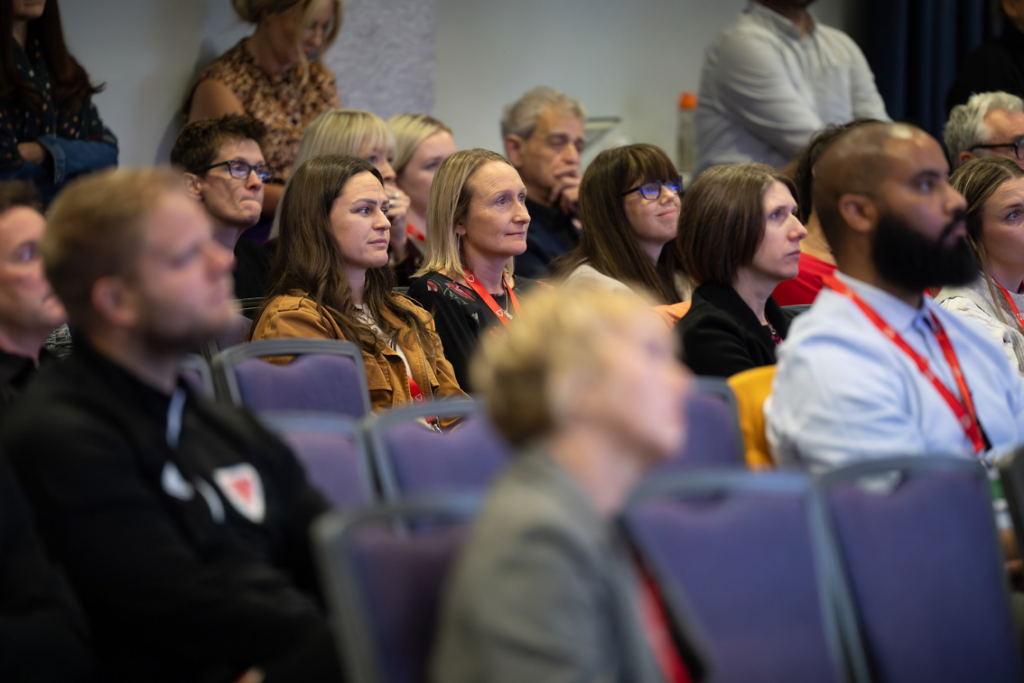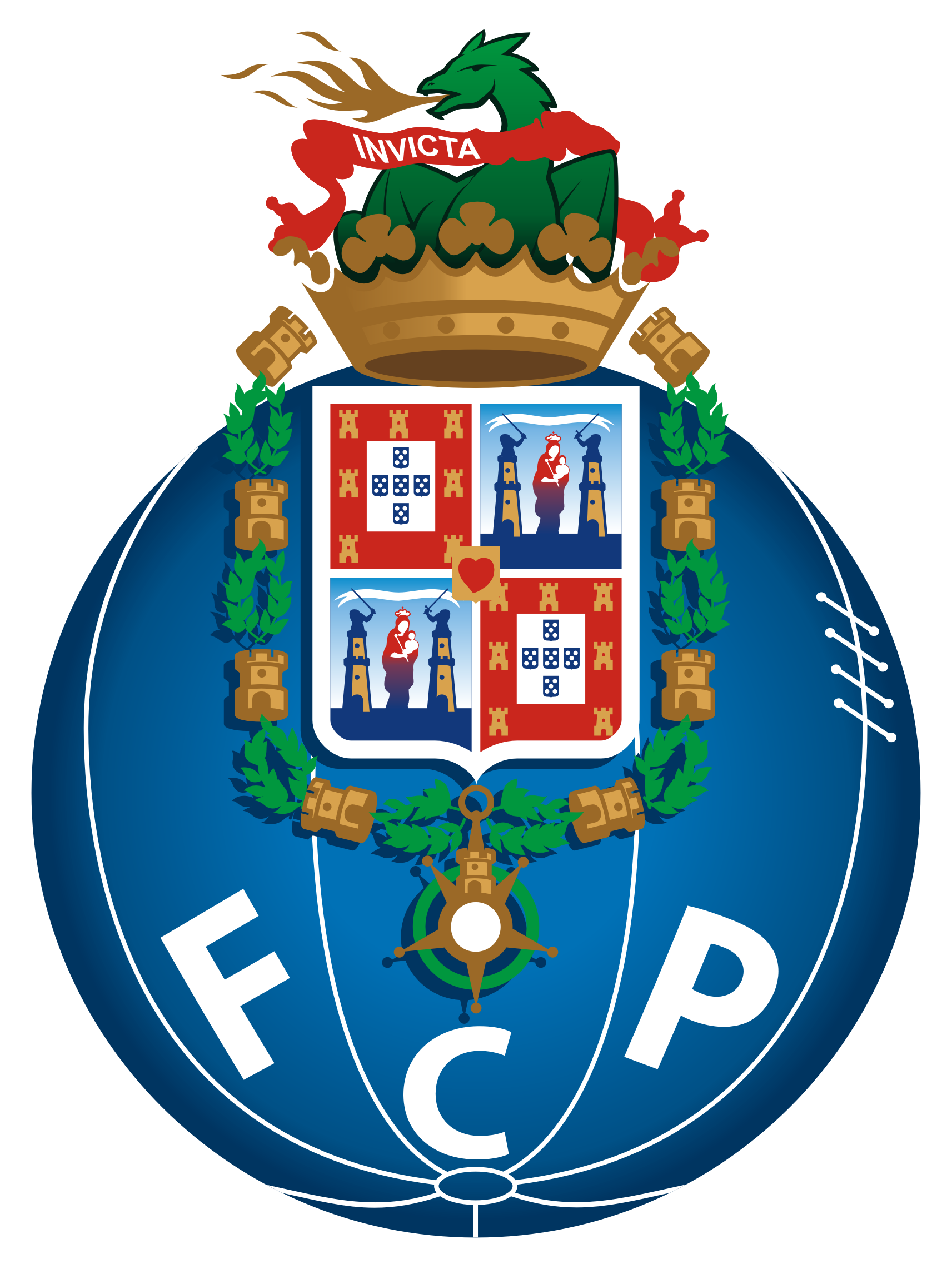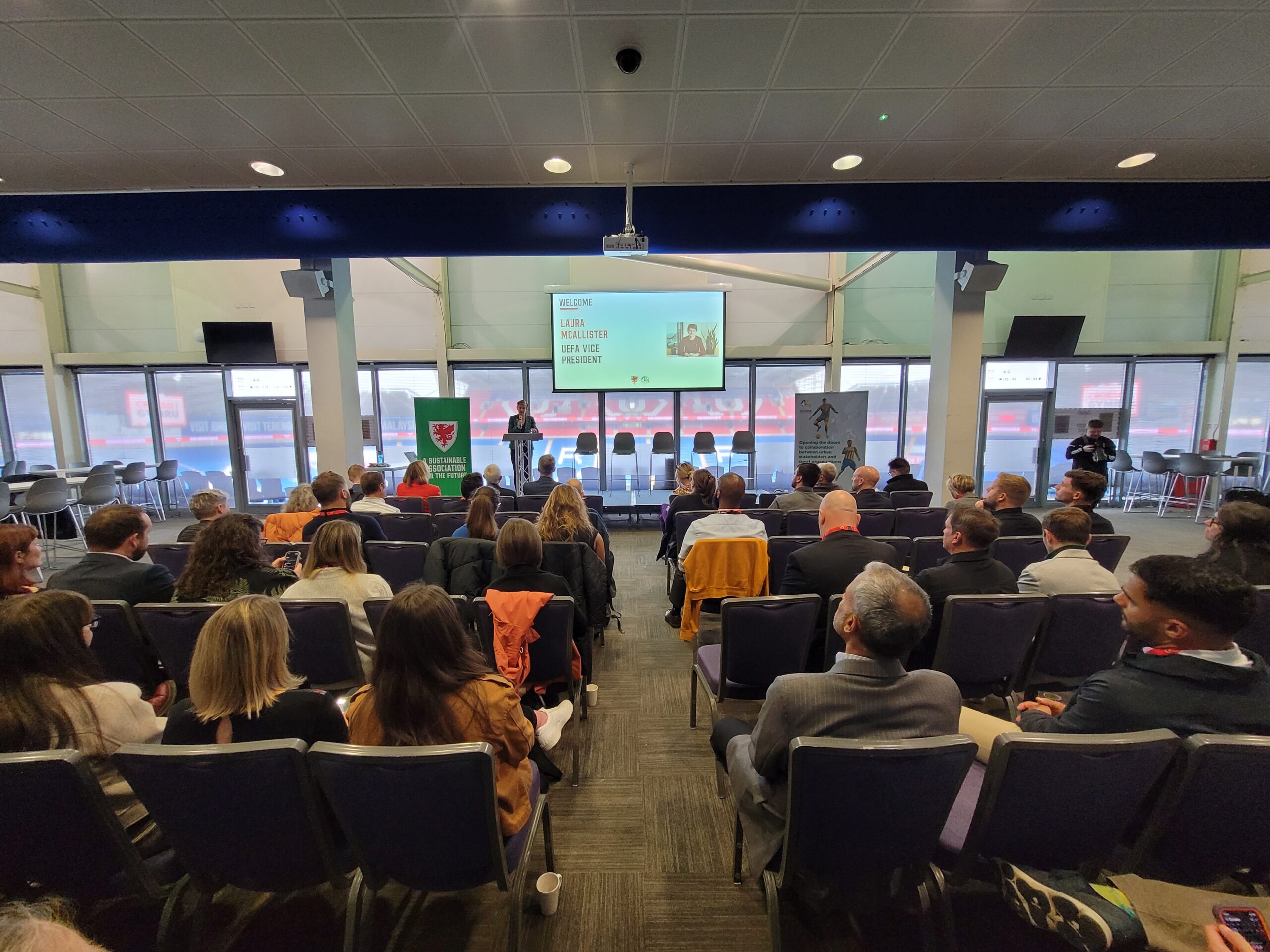Football Association of Wales
The Football Association of Wales held its ACCESS local dissemination event in front of a diverse audience
Titled “Football and a Sustainable Future” and this landmark event brought together a diverse audience of more than 50 at Cardiff City Stadium on 14 October – an opportunity for the Welsh FA to showcase their partnerships developed during the ACCESS project and further confirm their commitment in improving various environmental performances.
The event, which was labelled as an Erasmus Days event, as it took place during the week of the same name, provided a platform to explore how football, as the world’s most popular sport, can be a powerful force in raising awareness about environmental issues and driving meaningful change. It highlighted the intersection of football and environmental sustainability, showcasing the sport’s potential to inspire action on climate change and promote sustainable practices within the football community.
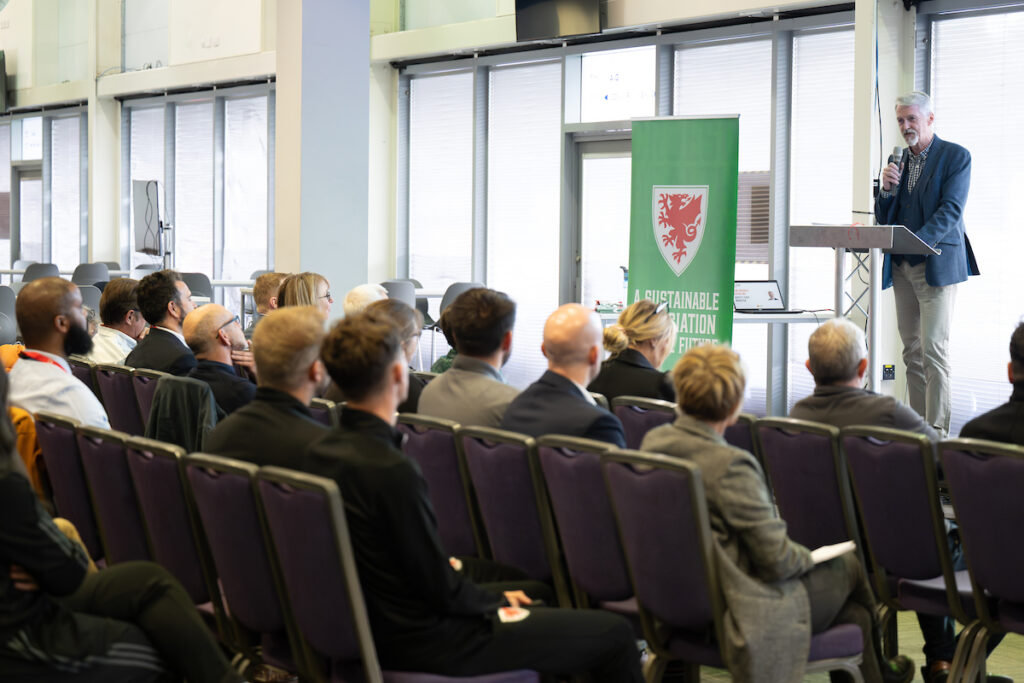
Opening the conference, Huw Irranca-Davies MS, Deputy First Minister and Cabinet Secretary for Climate Change and Rural Affairs, welcomed the FAW’s approach to sustainability and the positive contribution that football can make in tackling climate change.
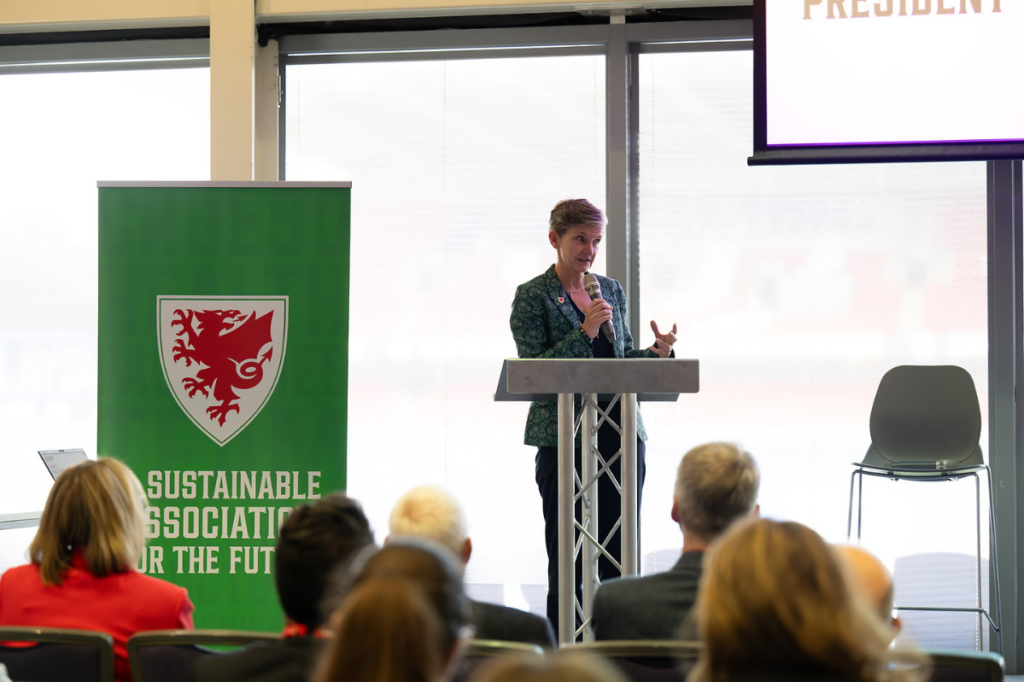
Laura McAllister, on behalf of UEFA as its Vice President outlined the work that UEFA is doing in this area and spoke of the high regard that the organisation has for the FAW’s approach. Her speech was followed by the one of Helen Antoniazzi FAW’s Head of Public Affairs & Sustainability introducing the FAW’s sustainability strategy – Cymru Wellbeing and the World, and highlighted the organisation’s commitment to addressing global and local sustainability challenges, emphasising football’s potential to influence positive environmental change.
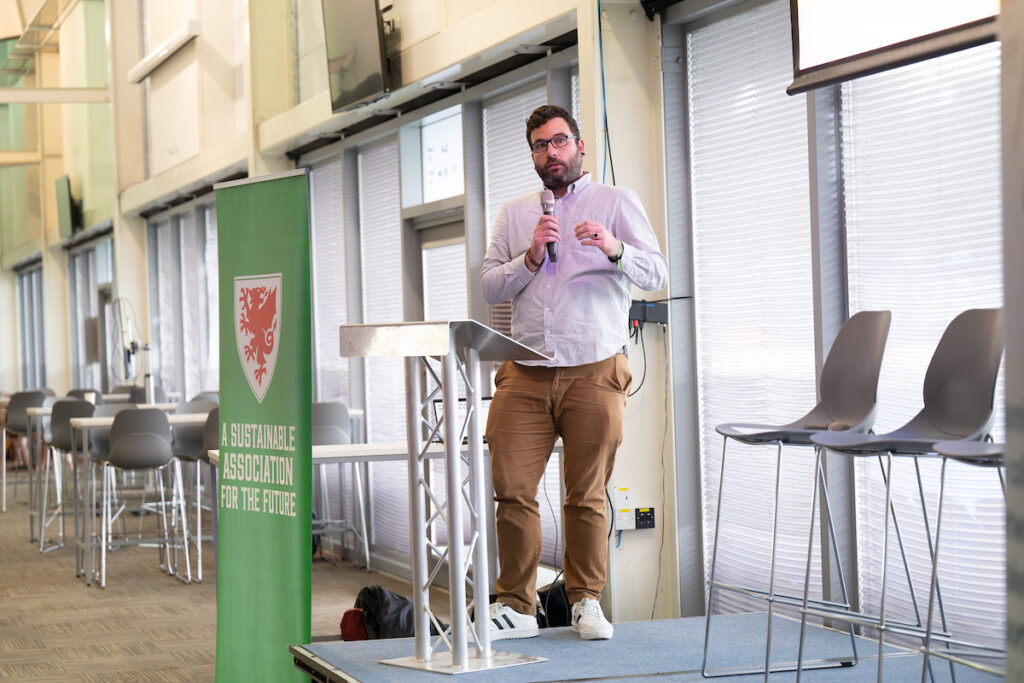
Representing the ACCESS project, Ernest Kovács of ACR+ provided an overview of the project, which focuses on achieving circularity in cities by promoting environmental sustainability through sports. His presentation emphasised the willingness and the motivation of various stakeholders in sports – clubs, associations, supporters, public authorities, offering data that illustrated the trends and tendencies, as well as the need for enhanced cross-sectoral cooperation and alignment with local and regional strategies and targets.
Filippo Veglio from UEFA presented the governing body’s Strength Through Unity Sustainability Strategy. He discussed how UEFA is addressing environmental issues in both football and society, aligning its efforts with global frameworks such as the Paris Agreement, the UN Sports for Climate Action Framework, and the European Green Deal. These initiatives highlight the importance of transitioning towards a green, sustainable economy.
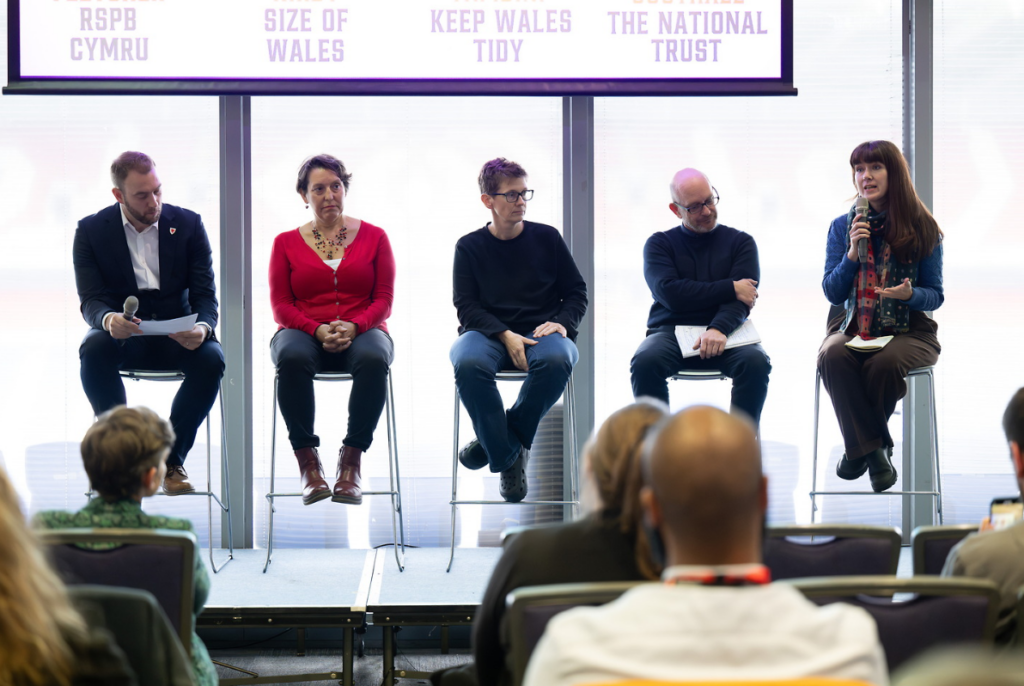
The event also featured a panel discussion on biodiversity and nature conservation. Angie Kirby of Size of Wales, Lesley Fletcher of RSPB Cymru, Keep Wales Tidy’s Louise Tambini, and Paul Southall representing The National Trust shared their experiences, strategies, and the challenges their organisations face in preserving biodiversity. The panel concluded with practical suggestions for individuals and Clubs to take small, impactful steps toward sustainability, including promoting wildflower growth, organising litter-picking initiatives at football clubs, and opting for active or public transport whenever possible.
The day concluded with a best-practice case study from Clarbeston Road AFC. Club Chair Steve Brown outlined the club’s innovative approaches to integrating sustainability into its operations, such as installing solar panels, planting wildflowers around pitches, and trialling an electric self-driving lawnmower. These efforts demonstrated how grassroots Football Clubs can lead by example in sustainability.
